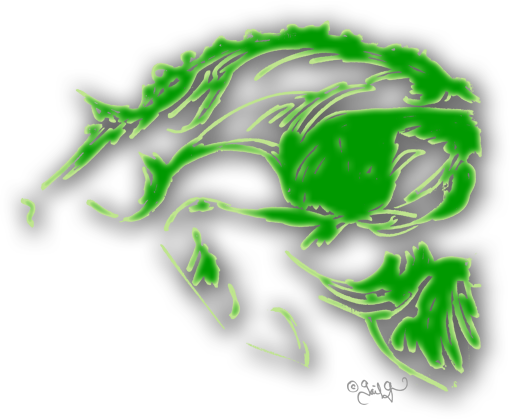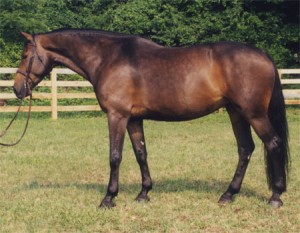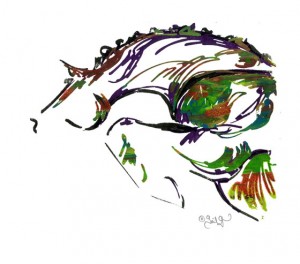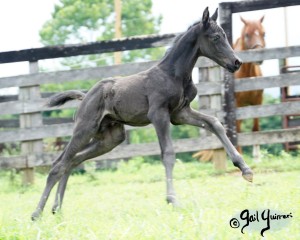Value of Relationship in Horse Training
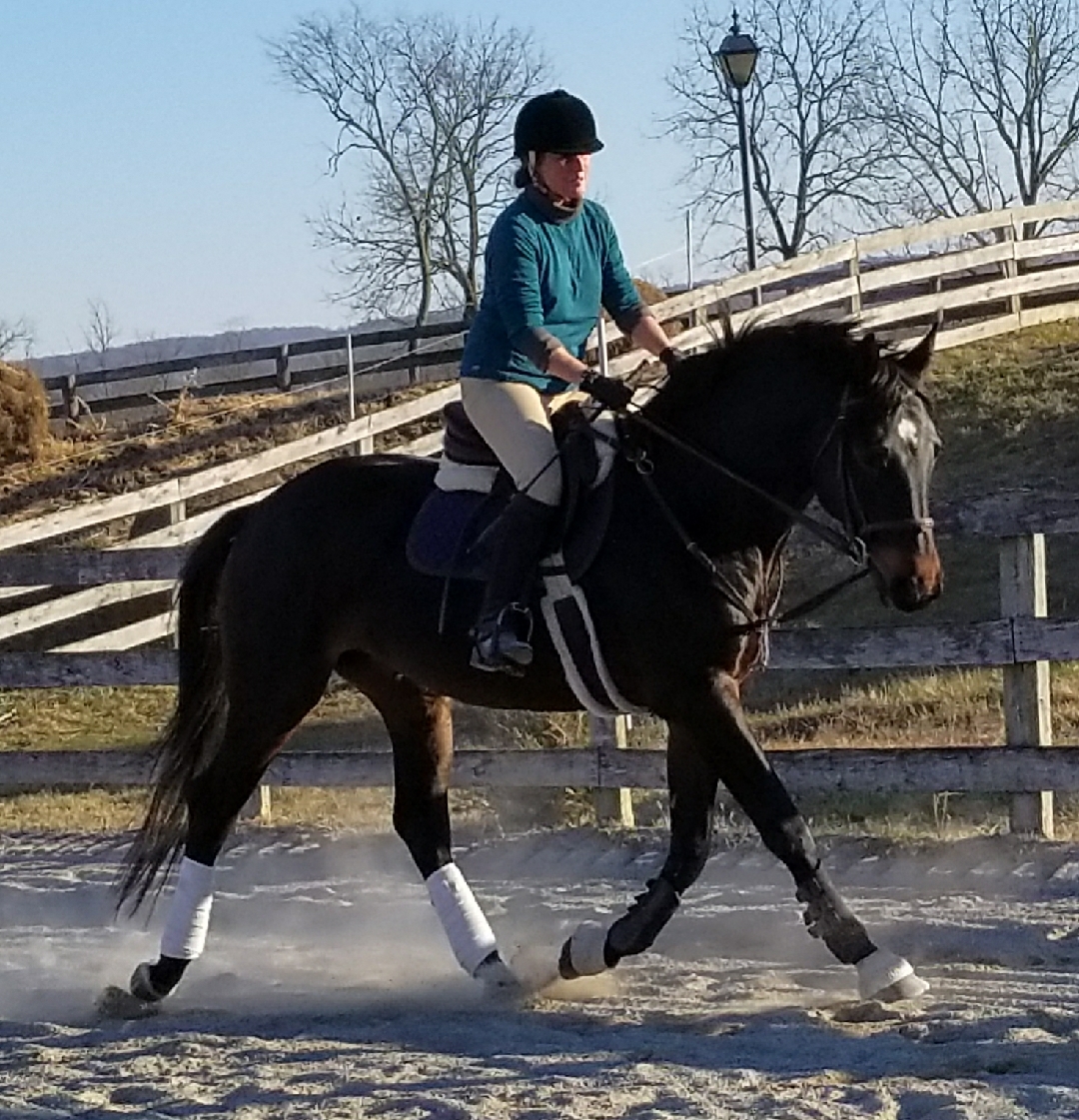
As a breeder of Holsteiner sport horses for over 30 years I have had my chance to understand training of the young horse from day 1 all the way to championships in the hunter ring. You can train with the best of the best, read every great book, have perfect aids and an eye for a distance but if your horse does not like you or respect that you are there for them in a tight spot, a winning moment can be made or lost to the heart of the horse. Often we see this moment as a lack of maturity or experience. But when I breed a balanced, smart, athletic horse I do expect them to be able to accomplish more sooner when this one element, relationship, is put to use.
So how do we gain from a nurtured relationship with our horses? How much time will it take and is it really worth the effort in a day that is already too long?
First we have to look at the opposite side of being our horse's leading friend. There are obvious stages to 'giving in' that a horse has to go through. These moments are not necessarily their favorite but are very much a part of herd mentality life. No matter if it comes from us or a boss mare, a horse will be carefully bossed around from early in life by the herd. The difference lies in fairness of this bossing. If a herd has grown up together, with it's own band of foals, they are quite sensitive towards each other. It does not take much more than a look for a leader to reprimand another horse. If a new mare is brought in, the herd is disrupted and the reprimands can be quite aggressive. A top mare may get kicked down in the line of hierarchy, feel emotionally low but she will stay and often be a protector of a younger filly.
Most trainers approach their job as the new boss mare. They jump right in and rearrange any previous expectations in hierarchy that horse might have had. A horse will feel sullen and definitely not up to giving their best. A really smart horse may already know that game and win the first few rounds with aggressive evasion techniques that are hard or sometimes impossible for a 150 lb rider to overcome with a 1200 lb horse. It can be an athletic, explosive buck, a strong spook, rearing before actually even mounted, bolting, grabbing the rider by the leg with teeth, or even flipping over on purpose. These are some of the worst I have seen and are not always a result of bad training. Sometimes the horse has not fully matured mentally or physically and they are reacting to the pressure in a way that is either fun, self serving (retain their place in pecking order with humans) or even self protecting should they feel pain. In such worst case scenarios, well timed horsemanship is required along with befriending techniques that gain the horse's attention distracting them from their original reaction. Distracting is key!
Befriending your horse can happen at any time. If befriending is done without good horsemanship, we call it spoiling the horse. Befriending a foal can be done by scratching it in a way that is enjoyable but not to the point of being playful. Treats are often used with mature horses but without rules, they spoil a horse quickly. Their focus becomes so overwhelmed by treats they forget all their manners. A good rule to have is to keep your space your space. I find stretches to be the best way to offer up a treat. I punch my horses in the side as part of their early leg acceptance training and they have to stretch to that point to get the treat. Stretching in a bow is another good place for a horse to be for a treat. It keeps them off of you and in time they bow very quickly.
There are other levels of befriending your horse that are maybe not as obvious but more important in the long run. The older horse can have bad experiences that trainers overlook because they were minor. Horses remember so much more than we expect, and sometimes more than we remember. The saying 'the horse is always right' is taught to us for good reason. Those bad experiences or simply lack of confidence moments are what we would like to work on. We all make mistakes and a horse that wants to be your friend is more likely to be more forgiving.
I recently witnessed a simple example of how to distract and redirect a horse's thoughts in just one day. My 8 years old, large, often sleepy quiet but explosively spooky gelding with an exceptional memory seeks and repeats these spooks out of entertainment and self training. Being hard on him gets him more excited and ignoring it does not help. In today's world of horse shows, this horse would come out at 4 am to be lunged for an hour and possibly ridden for an hour before a class. I expect with time and heat of summer, he would give in more and more but at what cost? From what I have seen of him the last 4 years, to attempt to wear him out only makes him worse. One he gets more fit and two, he does not respond well to pain or soreness. Then there is the ride on cold days. All the training in summer heat will not work the same come winter. He keeps me thinking and calculating how to go forward. Is he worth the efforts? When he is quiet he is lovely. Another fact is, he really does like me compared to my other mount that could probably care less.
As an amateur, my job keeps me very busy for months at a time. My horses get time off and I pick back up and hope to be where we left off, minus the fitness. This particular season, we had lots of rain and the fall grass is lush. One paddock has had months of rest and gives me a place to work out of the comfort of the arena. Out herd of deer took it over. As we enter and come around the corner, deer pop around in all directions. After this first sight, he expects them constantly. I can work him until he is most tired but he comes back the next day to be just as spooky as the day before. Frustrating, yes it is. His big spook is too much for my abilities but if I can block and spook him in place, I will live with it. I have used carrot stretches, standing still and my favorite, deep breaths. What is left?
After a good hard work and bath, I decided to take a walk with him right back to the problem spot. He was nervous and hesitant but after a while realized how good the grass was and hand grazed for some time. The next day, the spooks were much less and his focus was on the grass. I don't graze with the bit but bring him back after his work. His distracted mind or new focus took much of the problem away in just the one day! When riders hand their horses off to the groom every day, such opportunities do not arise. The hand graze needed to happen with me not a groom, or the effect would not be in our relationship. As well, any training moment that might happen while grazing needed to come from me. Possibly a deer does pop out? I say no and keep his focus on head down, then that moment can be part of my request later under saddle.
Befriending your horse does not have to take hours and hours but it should be about your presence in their life other than in the saddle. Grooming, hand grazing, feeding and simply hanging out with them all builds you brownie points to that moment that will leave you a glowing feeling for a lifetime.
Cloverlone Broodmare Farm Training Journals
Related Links
Allowed: 64M/67108864KB.
Current: 18832KB. Peak: 19518KB.
